Articles from The Feinstein Institutes for Medical Research

For years, The Feinstein Institutes for Medical Research has been calling attention to the historical lack of diversity and inclusion in medical and scientific research. Now, a new perspective piece published today Nature Neuroscience underscores this urgent need, specifically highlighting the critical importance of inclusivity in human neuroscience studies.
By The Feinstein Institutes for Medical Research · Via Business Wire · December 27, 2024
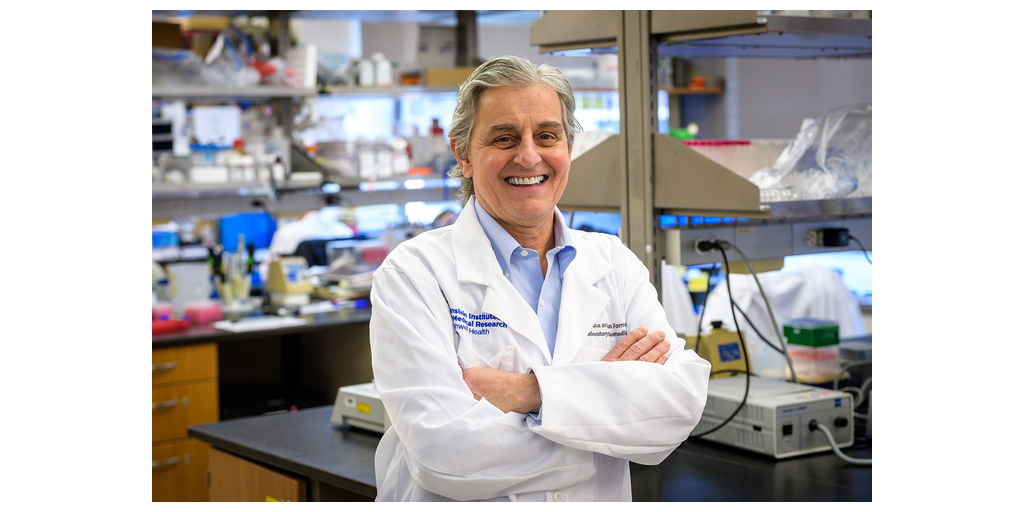
The Royal Swedish Academy of Engineering Sciences (IVA) has announced that Kevin J. Tracey, MD, president and CEO of Northwell Health’s Feinstein Institutes for Medical Research has been elected as a Fellow for his pioneering work in bioelectronic medicine. Dr. Tracey’s election – which is considered one of the highest honors for engineers and scientists in Sweden and internationally – will be recognized at the Academy in October 2025.
By The Feinstein Institutes for Medical Research · Via Business Wire · December 16, 2024
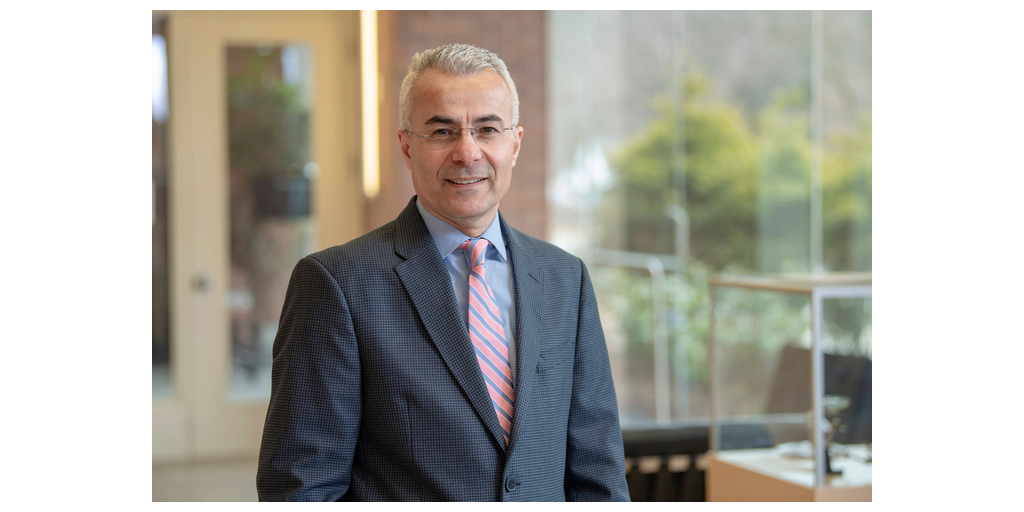
Yousef Al-Abed, PhD, co-director of, and professor in, the Institute of Bioelectronic Medicine at the Feinstein Institutes for Medical Research, has been awarded a fellowship in the 2024 class of the National Academy of Inventors (NAI). According to the NAI, the fellowship highlights academic inventors who have demonstrated a prolific spirit of innovation in creating or facilitating outstanding inventions which have made a significant impact on innovation, economic development and society’s welfare.
By The Feinstein Institutes for Medical Research · Via Business Wire · December 10, 2024

Clinical health psychologist, behavioral medicine researcher and implementation scientist at The Feinstein Institutes for Medical Research, Stephanie L. Fitzpatrick, PhD, was named president of the Society for Health Psychology, which is Division 38 of the American Psychological Association (APA) during the 2024 APA Convention in Seattle, Washington. Dr. Fitzpatrick’s election marks a historic moment, as she is both the youngest and the first Black president in the Society’s history. She is dedicated to using her tenure to promote the Society and how it enhances health psychology training, practice and research across career stages.
By The Feinstein Institutes for Medical Research · Via Business Wire · August 12, 2024

Discussion about gender identity has become a mainstream topic, with questions surrounding how the brain is wired and how behavior is influenced by someone’s sex or gender. New research from The Feinstein Institutes for Medical Research published today in Science Advances shows neurobiological underpinnings of sex and gender in children to better understand how sex (assigned at birth) and gender (identity and expression) influence the brain, and ultimately a person’s health.
By The Feinstein Institutes for Medical Research · Via Business Wire · July 12, 2024
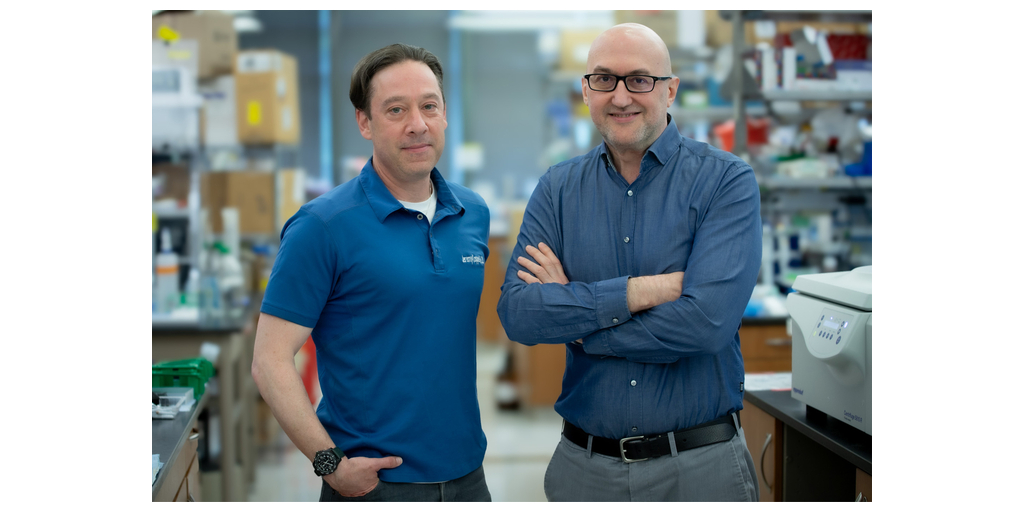
By 2060, it’s estimated that 14 million people will be living with Alzheimer's disease (AD), 40 percent of whom will experience psychotic symptoms. Today, Feinstein Institutes for Medical Research researchers published findings in the Journal of the American Medical Association (JAMA) Psychiatry that show an increase in specific tau proteins throughout the disease, indicating that these blood biomarkers could be used to detect psychotic symptoms in AD patients.
By The Feinstein Institutes for Medical Research · Via Business Wire · June 26, 2024

Sepsis, a silent killer that can cause shock and multiple organ failure, makes up almost a quarter of deaths worldwide. For his dedication to sepsis research and finding new therapies, Haichao Wang, PhD, professor in the Institute of Molecular Medicine at The Feinstein Institutes for Medical Research, has been named president-elect of the Shock Society.
By The Feinstein Institutes for Medical Research · Via Business Wire · June 18, 2024

The Feinstein Institutes for Medical Research has selected Michelle Monje, MD, PhD, from Stanford University, to receive the 11th annual Ross Prize in Molecular Medicine for her outstanding contributions to research relating to the neuroscience of cancer and its implications for therapy. The prize will be presented on June 20, in conjunction with the New York Academy of Sciences (NYAS) at Cure on 345 Park Avenue South in Manhattan and will take place as part of a half-day research symposium. To register for the event (in person or virtual), click here.
By The Feinstein Institutes for Medical Research · Via Business Wire · June 11, 2024
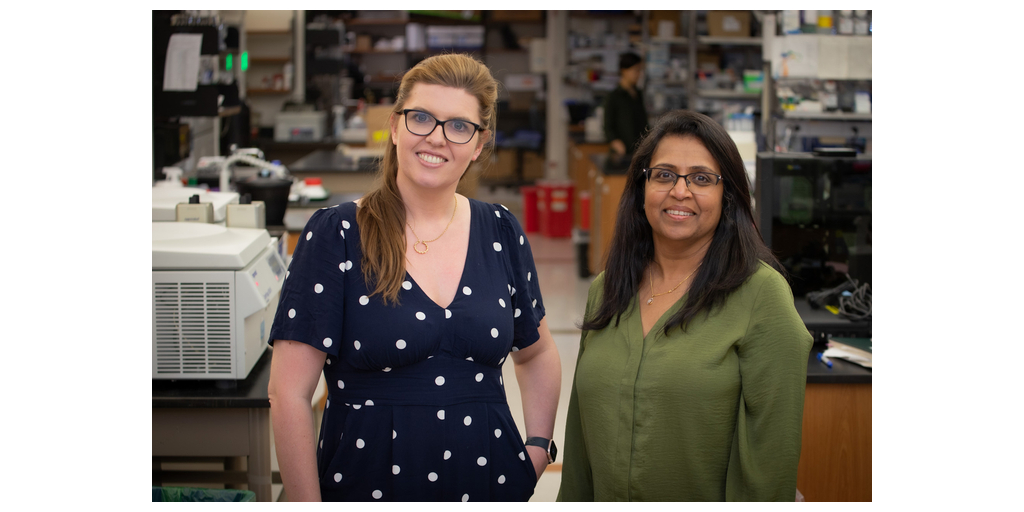
One of the major functions of the immune system is to – through antibodies – fight infections. New findings from The Feinstein Institutes for Medical Research bioelectronic medicine scientists show that neurons that help sense pain and prevent illness, called sensory neurons, play an important role in regulating the production of antibodies.
By The Feinstein Institutes for Medical Research · Via Business Wire · May 30, 2024
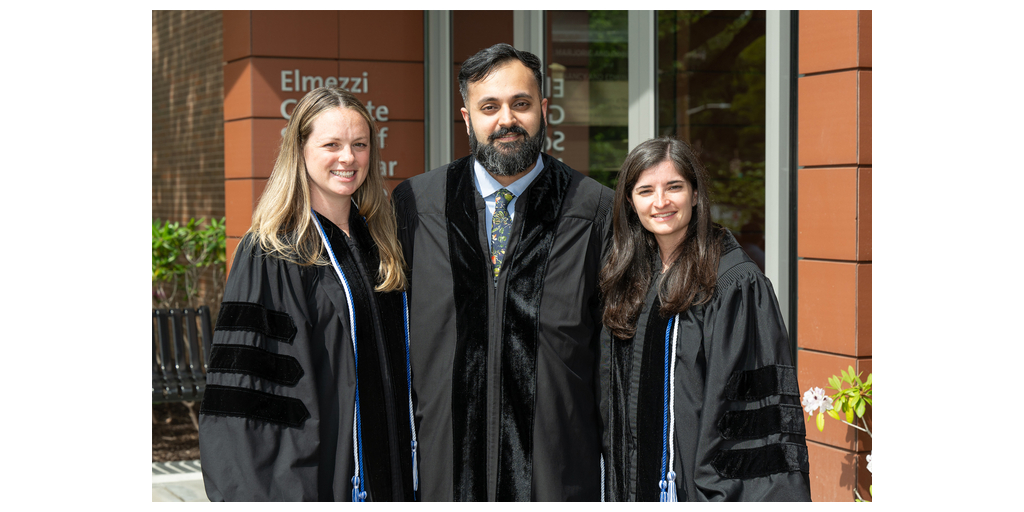
Many of the nation’s leading physician-scientists came together for two special events hosted by The Feinstein Institutes for Medical Research. On May 22, the Feinstein Academy of Scholars Symposium, an integrated network of researchers and scholars who share a passion for revolutionizing translational research, hosted its 7th annual symposium at The Oheka Castle, Huntington, NY. On the following day, May 23, the 2024 Commencement Exercises for the Elmezzi Graduate School of Molecular Medicine were held at the Feinstein Institutes in Manhasset, NY, where three PhD candidates received their degrees.
By The Feinstein Institutes for Medical Research · Via Business Wire · May 24, 2024
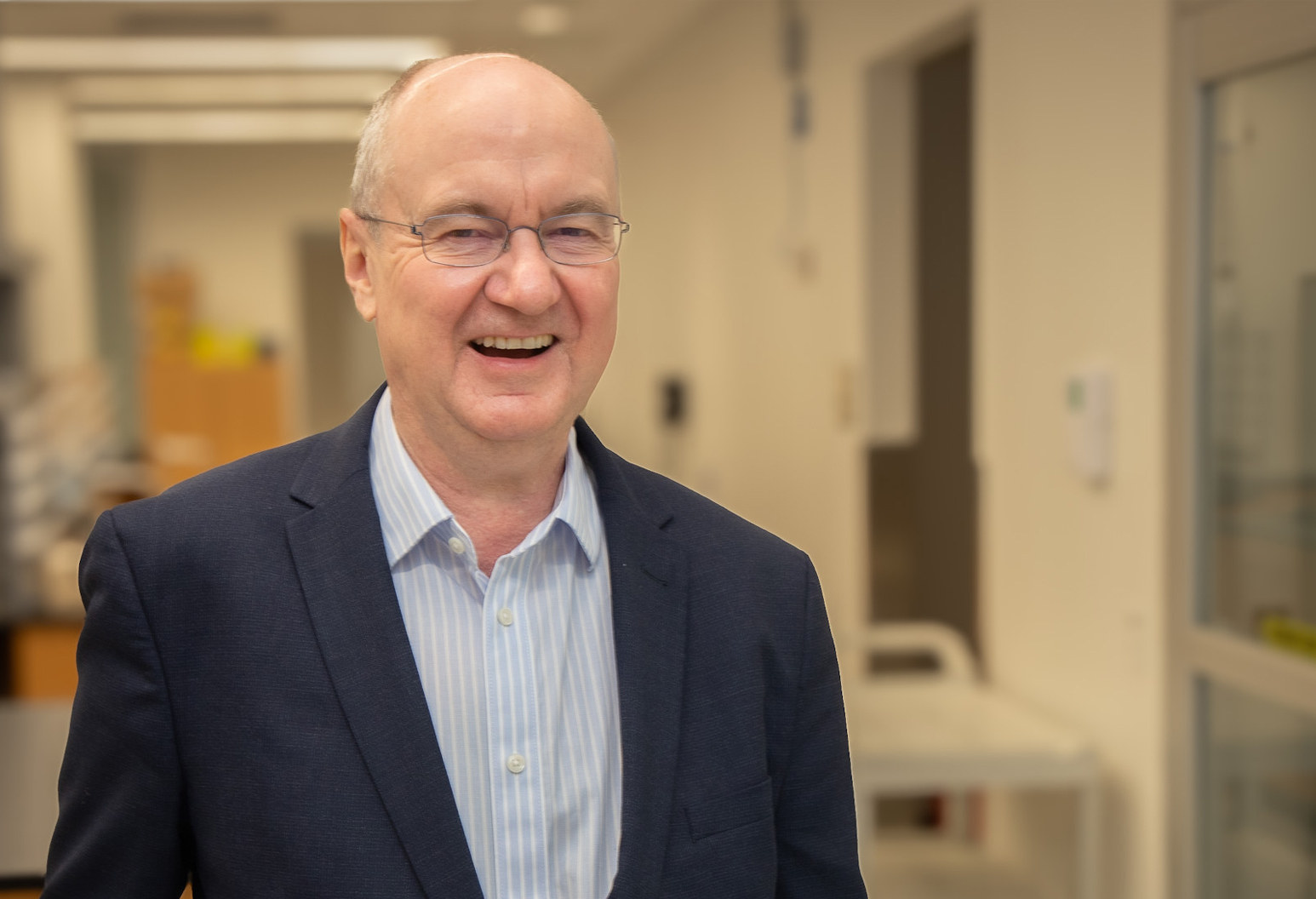
Psychiatric disorders like schizophrenia, bipolar disorder and depression have a strong genetic signature. Through advanced transcriptome-wide association studies (TWAS), researchers can identify unique gene expression profiles to identify new drug targets to treat these disorders. Today, results from a study published by researchers at The Feinstein Institutes for Medical Research and King’s College London in Nature Communications reveal new gene expression patterns linked to common mental health disorders, providing a roadmap for future therapeutic research.
By The Feinstein Institutes for Medical Research · Via Business Wire · May 22, 2024
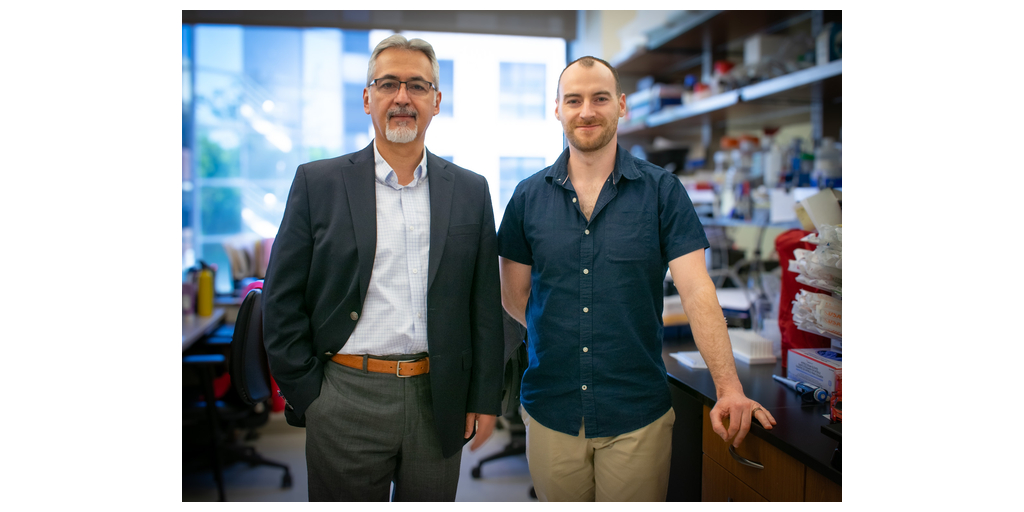
The leading cause of death worldwide is chronic inflammatory diseases. When the body is inflamed and under stress for long periods of time, the body’s heart rate increases, increasing the risk of fatality. A new study published in Brain, Behavior and Immunity by The Feinstein Institutes for Medical Research researchers shows that stimulation of the brainstem region where the vagus nerve originates, could help reduce inflammation and heart rate, and improve survival. This preclinical research opens new therapeutic avenues to address inflammation, and in turn, find ways to suppress heart rate by using vagus nerve stimulation in the brainstem.
By The Feinstein Institutes for Medical Research · Via Business Wire · May 15, 2024

The Feinstein Institutes for Medical Research’s Advancing Women in Science and Medicine (AWSM – pronounced “awesome”) 14th awards luncheon raised a record-breaking $1.3 million in funding to support medical research conducted by women scientists. Since AWSM’s 2010 inception, more than $5 million has been raised to support women scientists.
By The Feinstein Institutes for Medical Research · Via Business Wire · May 14, 2024

Ultrasound could one day complement or even replace drugs to treat diseases. Bioelectronic medicine scientists at The Feinstein Institutes for Medical Research used noninvasive, splenic focused ultrasound stimulation (sFUS) and found they can reduce inflammation and improve symptoms of pulmonary arterial hypertension (PAH). This was done in preclinical models, but could apply to humans for whom PAH is rare but fatal and affects predominantly younger women.
By The Feinstein Institutes for Medical Research · Via Business Wire · May 7, 2024

Up to 86 percent of hospitalized patients with Alzheimer’s disease and related dementias (ADRD) have oropharyngeal dysphagia (dysphagia), a type of swallowing dysfunction that can lead to aspiration, pneumonia, malnutrition, intubation, and even death. Although dysphagia diets, consisting of thick liquids, are widely used, it is unknown whether thick liquids improve patient outcomes. To study the effect of thick versus thin liquids – which are assumed to be easier to consume – researchers at The Feinstein Institutes for Medical Research published a large, retrospective study looking at the health outcomes of over 8,000 patients in the Journal of the American Medical Association (JAMA) Internal Medicine.
By The Feinstein Institutes for Medical Research · Via Business Wire · May 6, 2024
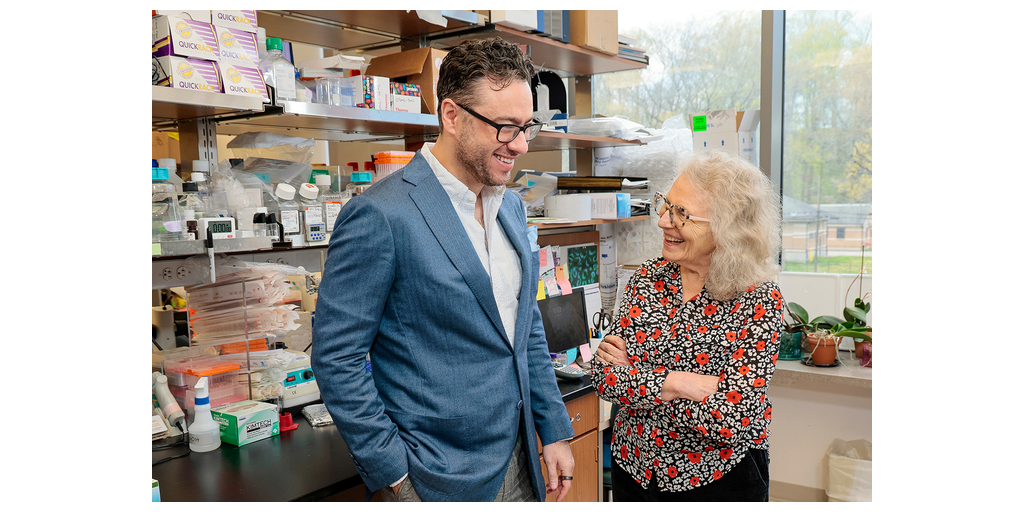
One of the main roles of the spleen is to help the body’s immune system fight infections. The spleen does this through producing and regulating antibodies – antibody production is negatively affected in various conditions, including sepsis and autoimmune diseases like lupus. New research published in Science Advances by The Feinstein Institutes for Medical Research scientists shows that activation of the vagus nerve triggers the spleen, thereby regulating the production of antibodies. This research highlights how the nervous system regulates immunity and suggests potential for non-pharmalogical, vagus nerve modulation to treat a variety of diseases, like lupus and sepsis.
By The Feinstein Institutes for Medical Research · Via Business Wire · April 26, 2024
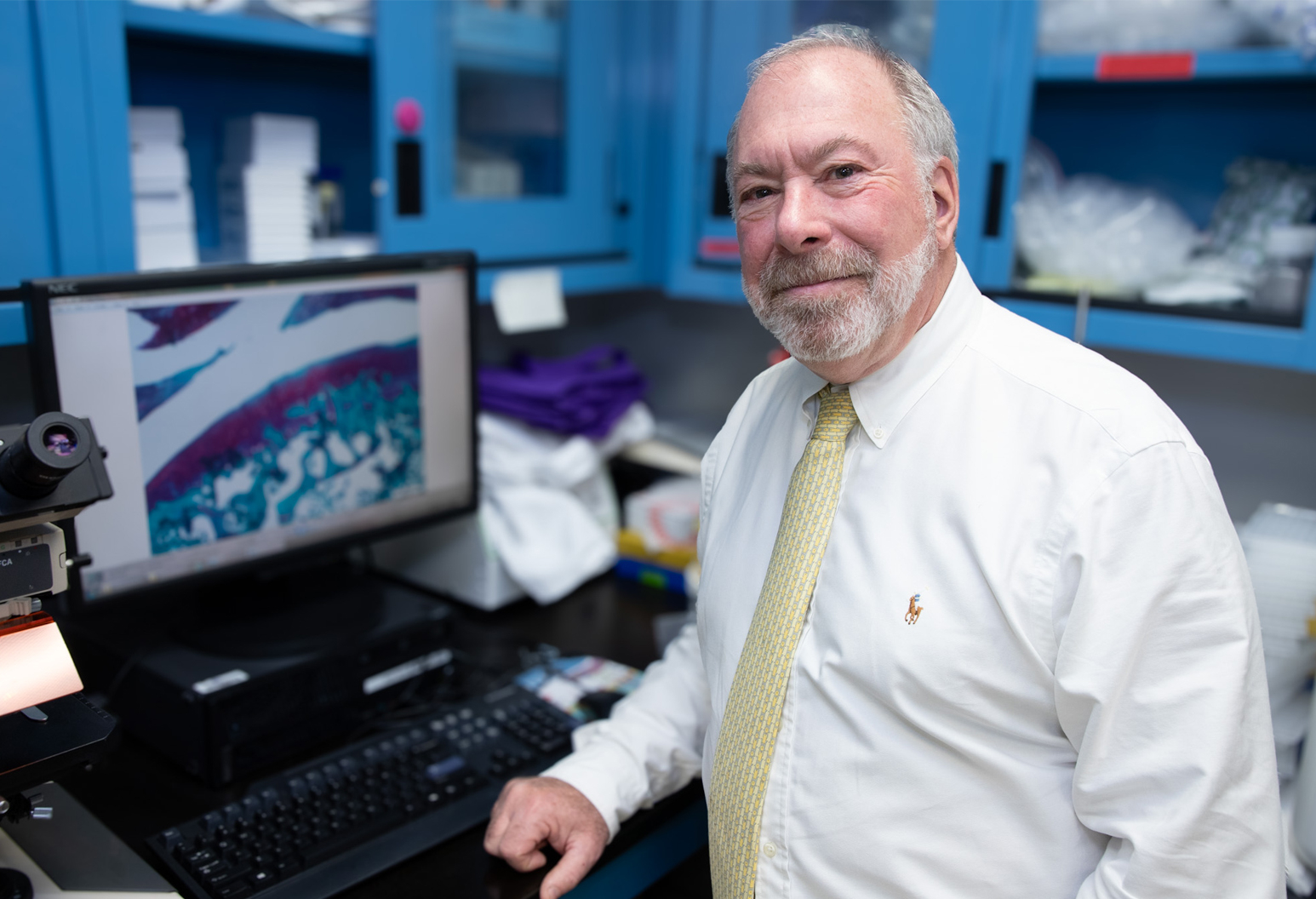
The International Cartilage Regeneration & Joint Preservation Society (ICRS) has named Daniel A. Grande, PhD, assistant vice president of research services and professor of molecular medicine and orthopedic surgery at The Feinstein Institutes for Medical Research, its new President-Elect. Dr. Grande will serve a two-year term, followed by an additional two-year term as the esteemed past president on the ICRS Executive Board.
By The Feinstein Institutes for Medical Research · Via Business Wire · April 18, 2024
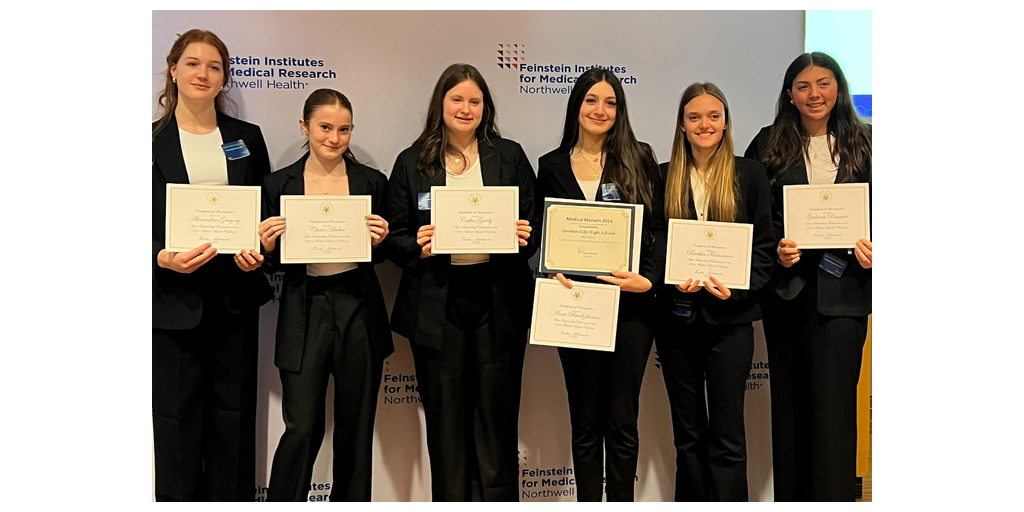
High school students from Garden City High School were awarded the title of Medical Marvels in this year's 12th annual science, technology, engineering and math (STEM) research competition, hosted by The Feinstein Institutes for Medical Research and Northwell Health’s Career Services team. More than 150 first- and second-year high school students from Long Island and New York City wrote research papers and presented novel ways to tackle educational inclusion for people living with disabilities. The winning team was announced on April 10, after the finalists presented their ideas in person at the Feinstein Institutes.
By The Feinstein Institutes for Medical Research · Via Business Wire · April 11, 2024

Red cell disorders, such as Diamond-Blackfan anemia (DBA) and sickle cell disease (SCD), affect more than 1 billion people worldwide and are a significant cause of chronic illness and mortality. To further our understanding and potential treatments of these disorders, The Feinstein Institutes for Medical Research has been awarded a $6.1 million grant from the National Institutes of Health (NIH).
By The Feinstein Institutes for Medical Research · Via Business Wire · April 3, 2024
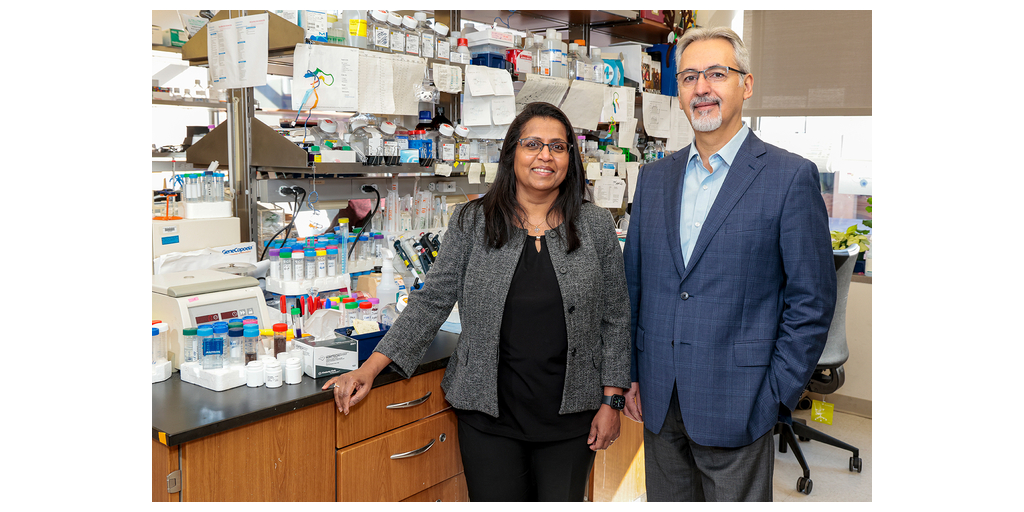
The American Institute for Medical and Biological Engineering (AIMBE) has announced the election of two researchers from The Feinstein Institutes for Medical Research to the AIMBE College of Fellows Class of 2024 for their contributions to the fields of medical and biological engineering, and particularly the field of bioelectronic medicine. Valentin Pavlov, PhD, and Sangeeta Chavan, PhD, both professors in the Institute of Bioelectronic Medicine, were recognized in-person during the AIMBE Annual Event in Washington D.C..
By The Feinstein Institutes for Medical Research · Via Business Wire · March 25, 2024

Brain-based impairments in memory, reasoning and planning – collectively known as cognitive deficits – are present in several major neuropsychiatric disorders, most notably schizophrenia, affective disorders, autism spectrum disorders and attention-deficit/hyperactivity disorder (ADHD). To further the scientific understanding, causes, and treatment, researchers at The Feinstein Institutes for Medical Research have been awarded a $3.1 million grant from the National Institutes of Health (NIH).
By The Feinstein Institutes for Medical Research · Via Business Wire · February 20, 2024

Dementia is a life-changing disease that alters memory, language and other cognitive functions in more than 55 million people worldwide. While psychiatric disorders have previously been evaluated as a predictor for dementia, a new study from researchers at The Feinstein Institutes for Medical Research provides evidence that psychiatric disorders before dementia onset are not connected to genetic dementia risks. Instead, they could be caused by shared underlying factors, including alcohol use disorder. The results of the new retrospective study are published this week in eBiomedicine, a Lancet journal.
By The Feinstein Institutes for Medical Research · Via Business Wire · February 6, 2024

The Feinstein Institutes for Medical Research and Molecular Medicine today announced that Peter Hotez, MD, PhD, a distinguished immunologist, pediatrician, and global health advocate, has been awarded the Anthony Cerami Award in Translational Medicine for his outstanding contributions to the field of molecular medicine and his dedication to addressing global health challenges.
By The Feinstein Institutes for Medical Research · Via Business Wire · December 14, 2023

Northwell Health and The Feinstein Institutes for Medical Research’s Chad Bouton received the Tesla Innovator of the Year Award from the Tesla Science Center at Wardenclyffe. Prof. Bouton was recognized for developing the brain-computer interface and neurostimulation technology demonstrated in the first-in-the-world “double neural bypass” clinical trial that helped a man living with quadriplegia move and feel again. The award was given to him during the Annual Tesla Legacy Gala on November 16 at Flowerfields in St. James, NY.
By The Feinstein Institutes for Medical Research · Via Business Wire · November 20, 2023
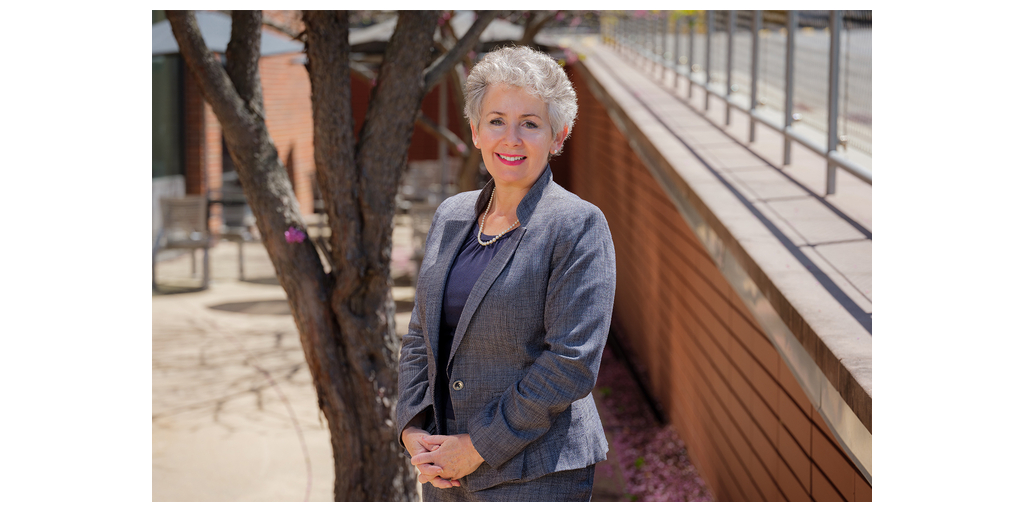
The United States has the highest maternal mortality rate among developed nations – with worse health outcomes for Black women and other minority groups. To help find actionable solutions, Karina Davidson, PhD, director of Northwell Health’s The Feinstein Institutes for Medical Research's Institute of Health System Science, led a number of preeminent scientists across the country in a National Institutes of Health (NIH) Pathways to Prevention independent task force. Their recommendations were announced today in the journal Obstetrics & Gynecology and included calling for a “Maternal Morbidity and Mortality Prevention Moonshot” that will set new goals to improve maternal health, guide funding and establish new interventional programs nationwide.
By The Feinstein Institutes for Medical Research · Via Business Wire · December 22, 2023

The Hans Wigzell Research Foundation today announced that Kevin J. Tracey, MD, president and CEO of Northwell Health’s Feinstein Institutes for Medical Research, is the recipient of the 2023 Hans Wigzell Research Foundation’s Science Prize in recognition of his significant contributions to the fields of neuroscience and neuroimmunology. Dr. Tracey will travel to Stockholm, Sweden, to receive the prize, which includes $100,000, and deliver a lecture on December 1.
By The Feinstein Institutes for Medical Research · Via Business Wire · November 2, 2023

For her dedication to research and leadership in rheumatology, Northwell Health’s Cohen Children’s Medical Center (CCMC) pediatric rheumatologist and Feinstein Institutes for Medical Research scientist Barbara Anne Eberhard, MD, has been awarded top honors by the American College of Rheumatology (ACR) and the Association of Rheumatology Professionals (ARP). Dr. Eberhard was recognized, and named an “ACR Master,” during the ACR Convergence 2023 annual conference which is being held November 10-15 in San Diego, California.
By The Feinstein Institutes for Medical Research · Via Business Wire · November 14, 2023

Approximately 2.3 million Americans live with bipolar disorder who are impacted by dramatic shifts in mood, energy and activity levels. In addition, treatment options could be limiting to some patients. Through a national research grant and innovative networking system aimed to connect patients to care, it might become easier for people with bipolar disorder to find new treatments and clinical trials.
By The Feinstein Institutes for Medical Research · Via Business Wire · October 19, 2023
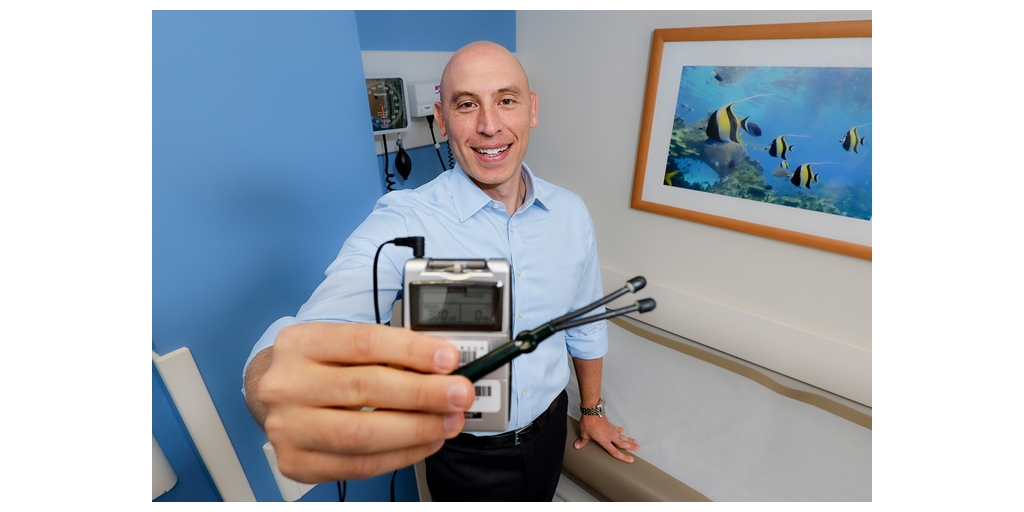
Chronic inflammatory bowel disease (IBD), including Crohn’s disease and ulcerative colitis, is rising in prevalence among children and can lead to abdominal pain, incontinence, diarrhea and delayed growth. While some biologic therapies are effective, medications are often accompanied by immunosuppressive side effects and many patients are left with unresolved chronic inflammation. Bioelectronic medicine researchers at The Feinstein Institutes for Medical Research and Cohen Children’s Medical Center published today in the journal Bioelectronic Medicine results from a proof-of-concept clinical trial that showed non-invasive, non-pharmacological transcutaneous auricular vagus nerve stimulation (ta-VNS), or stimulating in the ear, significantly reduced inflammation in more than 64 percent of pediatric patients with IBD.
By The Feinstein Institutes for Medical Research · Via Business Wire · October 18, 2023

From excessive bleeding to high blood pressure, even death, poor maternal health outcomes before or after delivery are at an all-time high across the United States, particularly for Black birthing people. Researchers at The Feinstein Institutes for Medical Research at Northwell Health were awarded $4 million from the National Institute of Nursing Research (NINR), part of the National Institutes of Health, to study effective maternal health interventions. The new research will evaluate the success of Northwell’s integrated care approach, The Maternal OutcoMes (MOMs) Program, and help determine what strategies should be scaled nationwide.
By The Feinstein Institutes for Medical Research · Via Business Wire · October 5, 2023
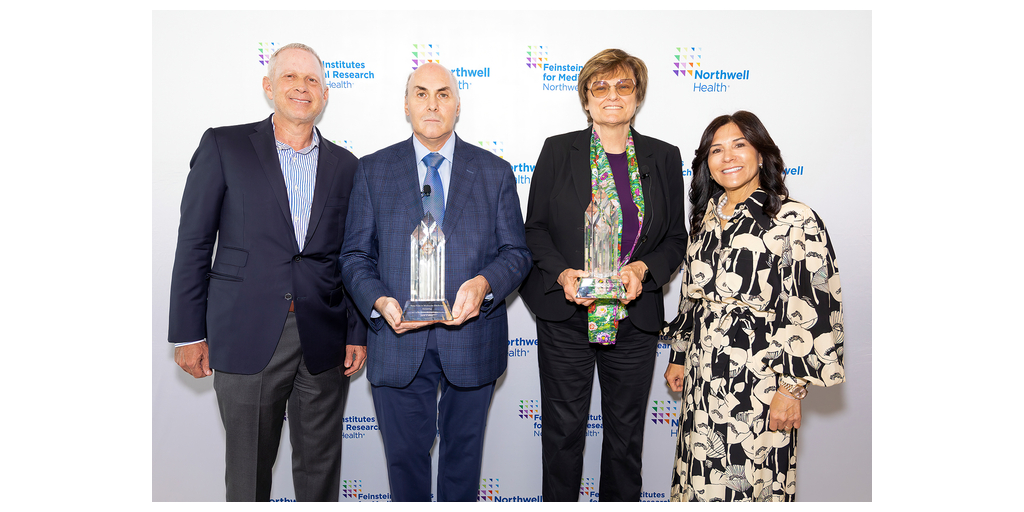
The Feinstein Institutes for Medical Research congratulates two scientists from the University of Pennsylvania Perelman School of Medicine, Katalin Karikó, PhD, and Drew Weissman, MD, PhD, for being awarded the 2023 Nobel Prize in Physiology or Medicine for their groundbreaking messenger RNA (mRNA) research that helped develop mRNA-based coronavirus disease 2019 (COVID-19) vaccines. In 2022, the duo was awarded the Feinstein Institutes’ 2022 Ross Prize in Molecular Medicine for their work.
By The Feinstein Institutes for Medical Research · Via Business Wire · October 2, 2023

There might be a lack of General Internal Medicine (GIM) physicians by the year 2032, which could cause implications for health care and delivery across the United States. A new study published in JAMA Internal Medicine from researchers at the Feinstein Institutes for Medical Research suggests that half as many resident doctors are electing general internal medicine careers compared to 10 years ago.
By The Feinstein Institutes for Medical Research · Via Business Wire · September 21, 2023

Hospitalized adult patients whose medical conditions worsen after being admitted, requiring escalation of care, such as transfer to the intensive care unit (ICU) or intervention of a rapid response team, may benefit from monitoring by artificial intelligence (AI). Scientists at The Feinstein Institutes for Medical Research were recently awarded $3.1 million from the National Institutes of Health (NIH) to fund a new study that would harness AI and machine learning (ML) to help doctors and nurses monitor patients in busy medical and surgical wards to identify and prevent deterioration and ultimately improve patient outcomes.
By The Feinstein Institutes for Medical Research · Via Business Wire · September 18, 2023

In a first-of-its-kind clinical trial, bioelectronic medicine researchers, engineers and surgeons at Northwell Health’s The Feinstein Institutes for Medical Research have successfully implanted microchips into the brain of a man living with paralysis, and have developed artificial intelligence (AI) algorithms to re-link his brain to his body and spinal cord. This double neural bypass forms an electronic bridge that allows information to flow once again between the man’s paralyzed body and brain to restore movement and sensations in his hand with lasting gains in his arm and wrist outside of the laboratory. The research team unveiled the trial participant’s groundbreaking progress four months after a 15-hour open-brain surgery that took place on March 9 at North Shore University Hospital (NSUH).
By The Feinstein Institutes for Medical Research · Via Business Wire · July 28, 2023
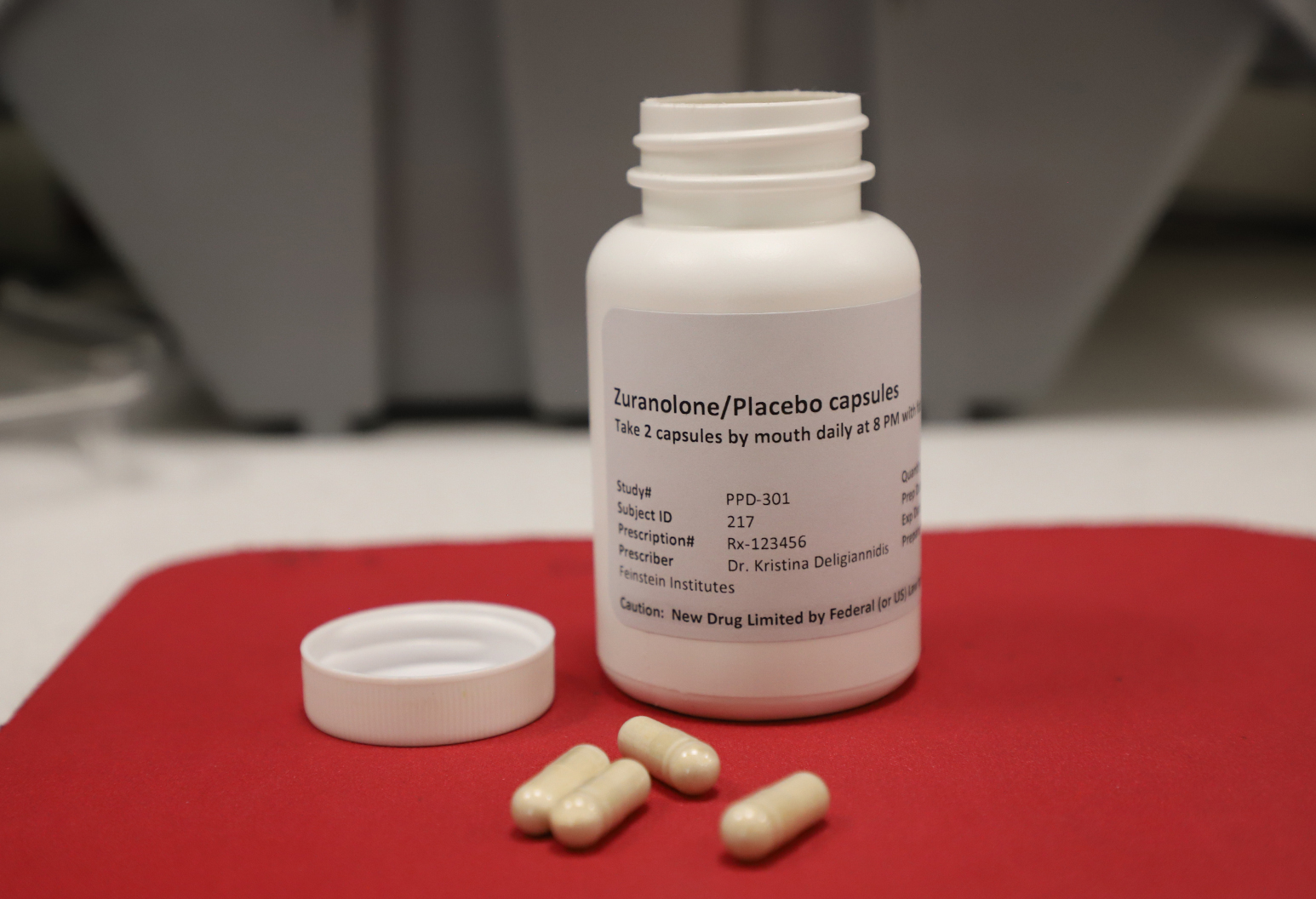
In a landmark decision, the U.S. Food and Drug Administration (FDA) has approved the first at-home oral pill, zuranolone, which will be sold under the brand named Zurzuvae, for treating perinatal or postpartum depression (PPD) – a condition one in eight birthing women experience. The decision is the culmination of decades of preclinical research done by scientists worldwide and the most recent clinical trials, led by Northwell Health’s The Feinstein Institutes for Medical Research’s Kristina M. Deligiannidis, MD, professor at the Institute of Behavioral Science at the Feinstein Institutes and the director of women’s behavioral health at Northwell’s Zucker Hillside Hospital.
By The Feinstein Institutes for Medical Research · Via Business Wire · August 7, 2023
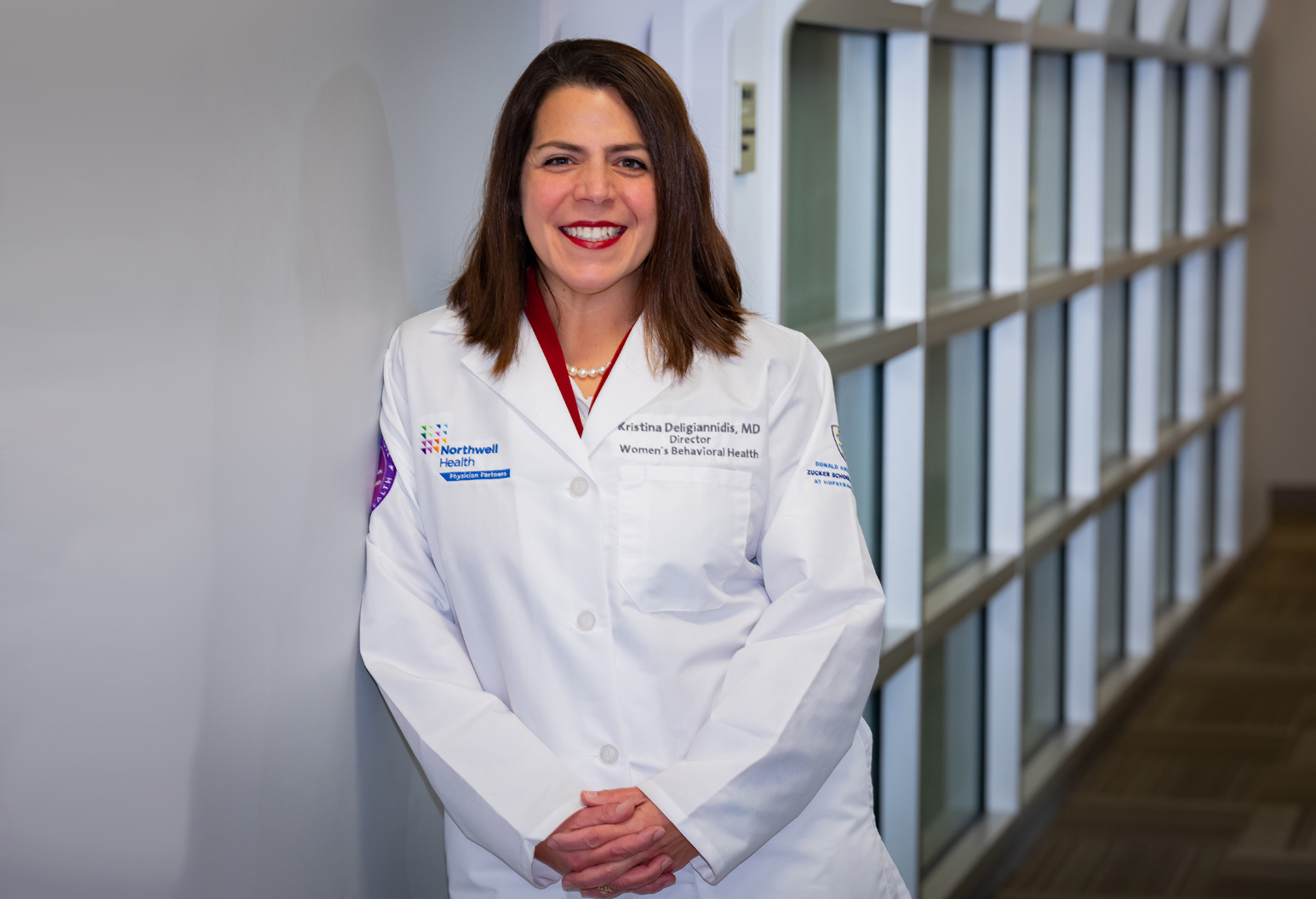
Approximately one in eight women experience perinatal or postpartum depression (PPD) and current treatment options can take months for new mothers to find symptom relief, if ever. Today, The Feinstein Institutes for Medical Research at Northwell Health announced the publication of the results from the SKYLARK Study, a phase 3 placebo-controlled clinical trial of an investigational oral, 14-day neuroactive steroid zuranolone (50mg) pill in the treatment of PPD. The results showed rapid, clinically meaningful improvements in depressive symptoms at measured time points –supporting the potential for U.S. Food and Drug Administration (FDA) approval of the first oral, at-home, neuroactive steroid therapy to treat PPD.
By The Feinstein Institutes for Medical Research · Via Business Wire · July 26, 2023

Sepsis makes up nearly a quarter of deaths worldwide, often leading to shock and multiple organ failure. Ping Wang, MD, an investigator at The Feinstein Institutes for Medical Research, has dedicated his career to sepsis research and is being rewarded with the Shock Society Mentor Award for his leadership and mentoring of young clinicians and basic researchers at the US Shock Society’s 46th annual Conference on Shock last month in Portland, OR.
By The Feinstein Institutes for Medical Research · Via Business Wire · July 25, 2023

Sepsis is one of the leading causes of in-hospital deaths worldwide and is often known as a silent killer. Despite claiming the lives of more than 11 million people globally each year, there is no one treatment. In a potential therapeutic breakthrough, investigators at The Feinstein Institutes for Medical Research have identified a type of white blood cell that can worsen inflammation in sepsis and opens up new avenues of research to treat the deadly condition.
By The Feinstein Institutes for Medical Research · Via Business Wire · July 21, 2023

Northwell Health and the Feinstein Institutes for Medical Research received a $10 million gift from Scott and Debby Rechler to create the Scott and Debby Rechler Center for Health Outcomes within the Institute of Health System Science at the Feinstein Institutes. The Rechlers’ gift will support the development of large-scale data models and leverage the utilization of cutting-edge artificial intelligence (AI) tools to identify and address healthcare disparities and patient risk factors to ultimately improve care. The generous gift will also establish the endowed Scott and Debby Rechler Professor of Health Outcomes and support the recruitment of a nationally recognized leader for the center.
By The Feinstein Institutes for Medical Research · Via Business Wire · July 12, 2023
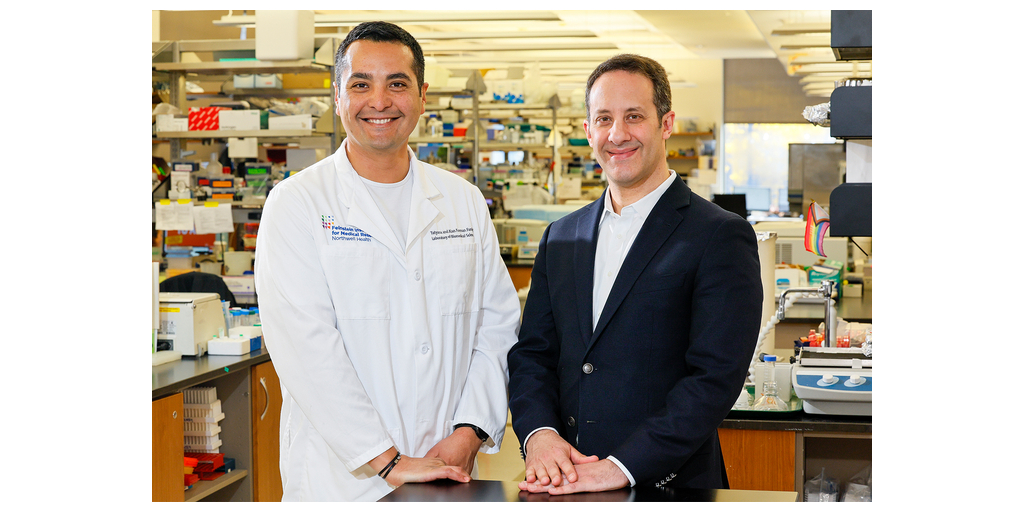
Hemophilia A, a bleeding disorder that prevents blood from clotting, affects more than 30,000 people in the United States and, in high-risk situations, can lead to death. Researchers at The Feinstein Institutes for Medical Research have shown that electrically stimulating the vagus nerve can reduce bleeding in preclinical hemophilic mice models – a finding that could translate into human patients. The study, published in Nature Communications, builds on years of research into harnessing the vagus nerve through electrical stimulation, a foundation of bioelectronic medicine.
By The Feinstein Institutes for Medical Research · Via Business Wire · June 1, 2023

The 2023 Commencement Exercises for the Elmezzi Graduate School of Molecular Medicine took place on May 25 at The Feinstein Institutes for Medical Research, where three graduate students were conferred with their PhD. Additionally, three honorary degrees were given during the ceremony to researchers who advanced biomedical research and improved medical treatment for patients.
By The Feinstein Institutes for Medical Research · Via Business Wire · May 30, 2023

While the popular artificial intelligence (AI) ChatGPT is seen as a potential educational tool, it won’t be getting its medical specialty certification anytime soon. To test its abilities and accuracy, investigators at The Feinstein Institutes for Medical Research asked the consumer-facing ChatGPT (Chat Generative Pre-trained Transformer, OpenAI) to take the 2021 and 2022 multiple-choice self-assessment tests for the American College of Gastroenterology. ChatGPT failed to make the grade, scoring 65.1 percent and 62.4 percent compared to the required 70 percent to pass the exams. Full details of the study were published today in the American Journal of Gastroenterology.
By The Feinstein Institutes for Medical Research · Via Business Wire · May 22, 2023
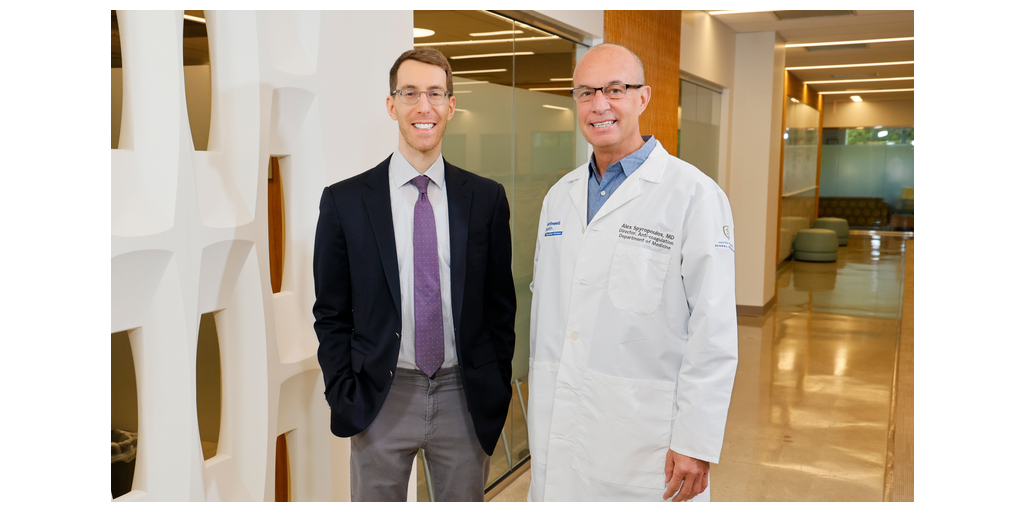
Because millions of people experience fatal venous and arterial thrombosis – blood clots – per year and those with COVID-19 are at higher risk, researchers at The Feinstein Institutes for Medical Research helped to design and implement an entirely virtual, outpatient, cloud-based clinical trial to understand the efficacy of a common prophylactic medication: rivaroxaban. While the PREVENT-HD multi-center site clinical trial found no significant impact of rivaroxaban to prevent clots, the findings - along with its novel remote trial design -were published today in the journal Circulation.
By The Feinstein Institutes for Medical Research · Via Business Wire · May 8, 2023

The Feinstein Institutes for Medical Research has selected two scientists from the University of Texas Southwestern Medical Center, Helen H. Hobbs, MD, and Jonathan C. Cohen, PhD, to receive the 10th annual Ross Prize in Molecular Medicine for groundbreaking research in dyslipidemias and metabolic liver disease. The duo was the first to discover the genetic cause of fatty liver disease in humans and their ongoing work has led to a new class of cholesterol-lowering drugs.
By The Feinstein Institutes for Medical Research · Via Business Wire · May 5, 2023

There might be a new, non-pharmacological way to treat major mental health disorders like schizophrenia spectrum disorders and psychosis. Researchers at The Feinstein Institutes for Medical Research have received a $3.4 million grant from Wellcome to study repetitive transcranial magnetic stimulation (rTMS) and its effects.
By The Feinstein Institutes for Medical Research · Via Business Wire · April 28, 2023
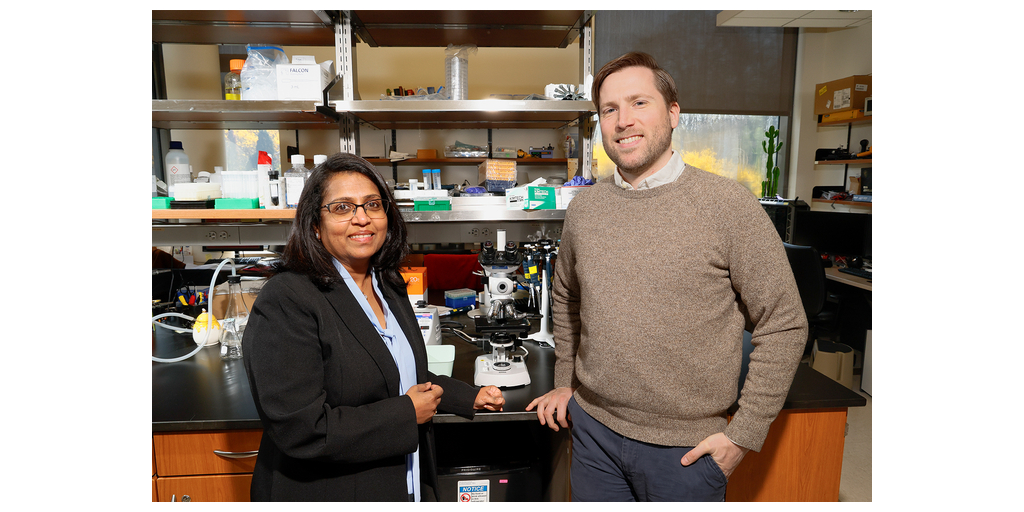
Acute pancreatitis is a common inflammatory condition leading to over 250,000 hospitalizations each year in the United States alone and is associated with a high mortality risk. In new research, scientists at The Feinstein Institutes for Medical Research have shown the ability to reduce pancreatic inflammation by stimulating the vagus nerve using optogenetics, or light. The study published today in Frontiers of Immunology.
By The Feinstein Institutes for Medical Research · Via Business Wire · April 25, 2023
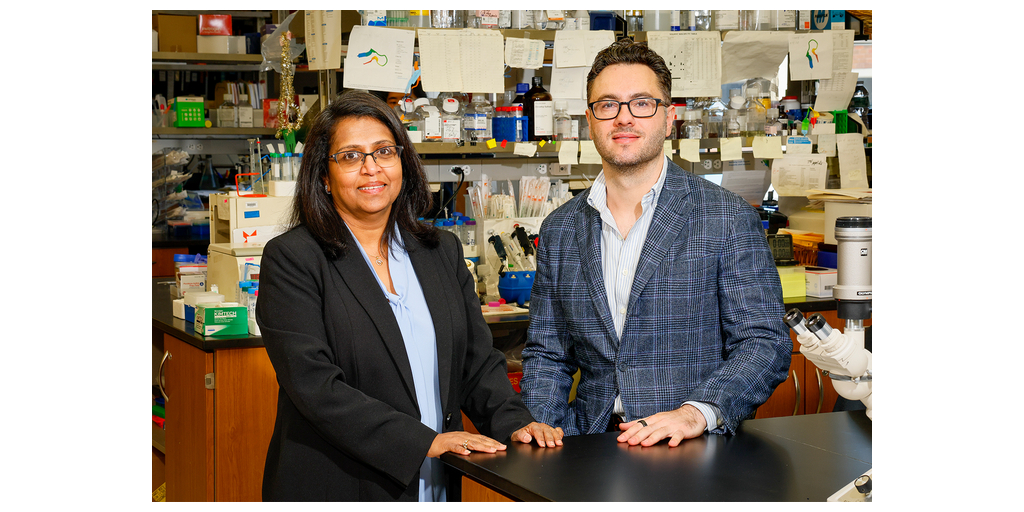
We’ve all seen ultrasound images from glowing moms-to-be; now, researchers at The Feinstein Institutes for Medical Research, in collaboration with GE Research, have harnessed ultrasound technology to non-invasively reduce inflammation in the body. Results from human studies published in the journal Brain Stimulation point to the possibility of using bioelectronic medicine and neuromodulation to treat inflammatory diseases traditionally treated only with drugs.
By The Feinstein Institutes for Medical Research · Via Business Wire · April 24, 2023

Bioelectronic medicine researchers at The Feinstein Institutes for Medical Research have developed a new method for studying neural signals transmitted to the brain through the vagus nerve – the nerve that helps controls functions like heart rate, breathing and immune response. By using calcium imaging technology to monitor neural activity from a cluster of neurons near the base of the skull, scientists hope to discover new clues about how the body communicates with the brain.
By The Feinstein Institutes for Medical Research · Via Business Wire · March 21, 2023

Mitochondria are organelles in our cells that act like batteries, processing the food we eat into energy. Through a series of studies, researchers at The Feinstein Institutes for Medical Research have shown that mitochondria transplantation (MTx), delivering new mitochondria to critical tissues, can improve survival and neurological outcomes after cardiac arrest.
By The Feinstein Institutes for Medical Research · Via Business Wire · March 16, 2023
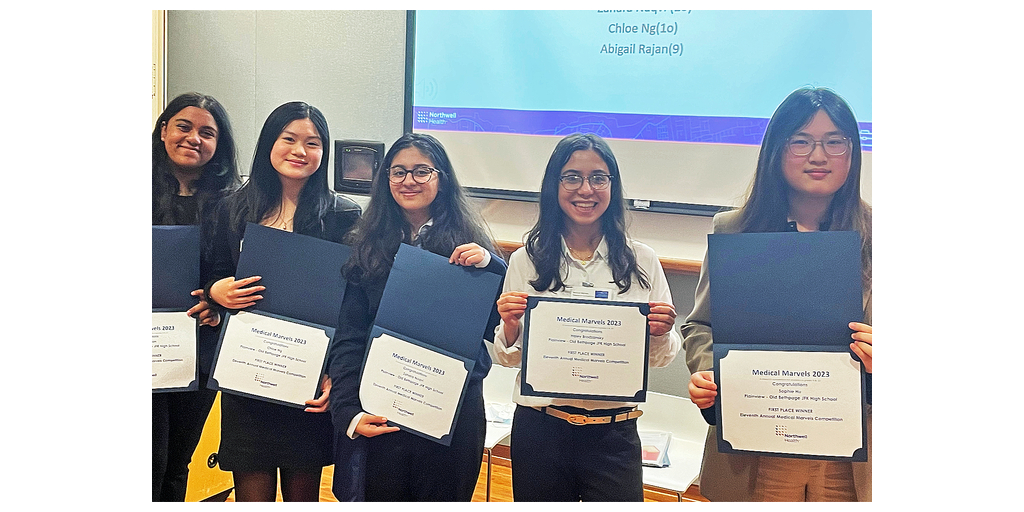
Plainview-Old Bethpage John F. Kennedy High School students were awarded the title of Medical Marvels in this year’s 11th annual science, technology, engineering and math (STEM) research competition, hosted by The Feinstein Institutes for Medical Research and Northwell Health’s Workforce Readiness department within Corporate Human Resources. More than 120 high school freshmen and sophomores from Long Island and New York City wrote research papers, designed scientific posters and presented novel ways to tackle climate change and global warming. The all-girls winning STEM team was announced on March 3 after the finalists presented their ideas in person at the Feinstein Institutes.
By The Feinstein Institutes for Medical Research · Via Business Wire · March 7, 2023

Translating medical research to clinical practice can take decades. In efforts to accelerate the implementation of practice-changing research results into clinical care to improve patients’ outcomes, Northwell Health's The Feinstein Institutes for Medical Research has been chosen, among 41 other U.S. health systems nationwide, by The Patient-Centered Outcomes Research Institute (PCORI) to participate in its Health Systems Implementation Initiative (HSII).
By The Feinstein Institutes for Medical Research · Via Business Wire · March 2, 2023
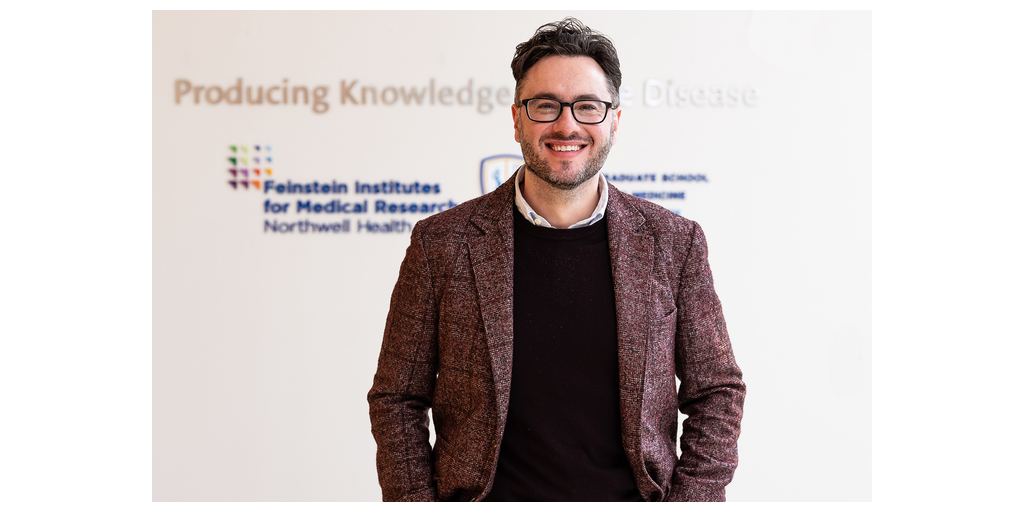
Starting in the brain and extending to our organs, the vagus nerve helps communicate and maintain how the body functions, including heart rate, breathing and immune response. For the first time, researchers at The Feinstein Institutes for Medical Research are microscopically mapping more than 100,000 individual fibers that make up the vagus nerve to determine how they are anatomically connected and which bodily function it controls. Bioelectronic medicine scientists published their early mapping in the journal Brain Stimulation, along with a novel vagus nerve stimulator that can activate targeted fibers, opening up new avenues of vagus nerve stimulation (VNS) research.
By The Feinstein Institutes for Medical Research · Via Business Wire · February 24, 2023

Sepsis is a silent and mysterious killer that makes up nearly a quarter of deaths worldwide. This disease often leads to shock and multiple organ failure, and because of its enigmatic features, researchers are looking at ways to combat it headfirst. Scientists from the Feinstein Institutes for Medical Research recently published in Science Advances the discovery of a novel protein that could be a potential therapeutic target for lethal sepsis.
By The Feinstein Institutes for Medical Research · Via Business Wire · February 3, 2023

The vagus nerve runs from the human brainstem to major peripheral organs and acts as the main conduit for the body’s inflammatory immune response to disease, bacteria and viruses. For the first time, researchers at The Feinstein Institutes for Medical Research have shown the ability to turn on specific receptors in the vagus nerve, activating the inflammatory reflex. The study, published in the journal Molecular Medicine, builds on decades of research into how to control the vagus nerve through electrical stimulation, which is the foundation of bioelectronic medicine.
By The Feinstein Institutes for Medical Research · Via Business Wire · January 18, 2023
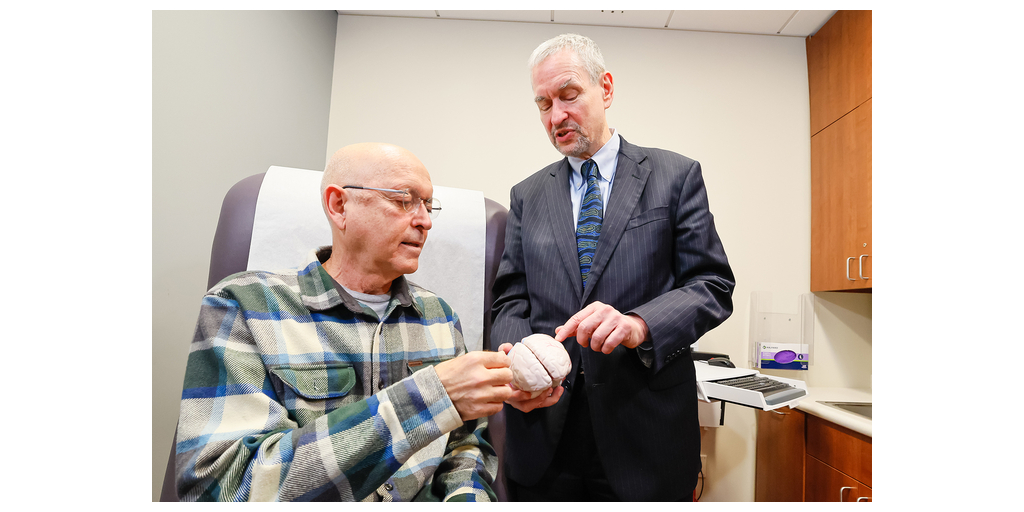
Nearly all people who develop high-grade gliomas will have regrowth of their tumors at some point, even after surgery, chemotherapy and radiation therapy. Looking to harness the potential of non-invasive ultrasound technology, clinicians at Northwell Health and clinical trial investigators at The Feinstein Institutes for Medical Research have begun to participate in the Alpheus™ Medical, Inc phase 1 clinical trial and enrolled its first set of patients at North Shore University Hospital (NSUH).
By The Feinstein Institutes for Medical Research · Via Business Wire · January 12, 2023
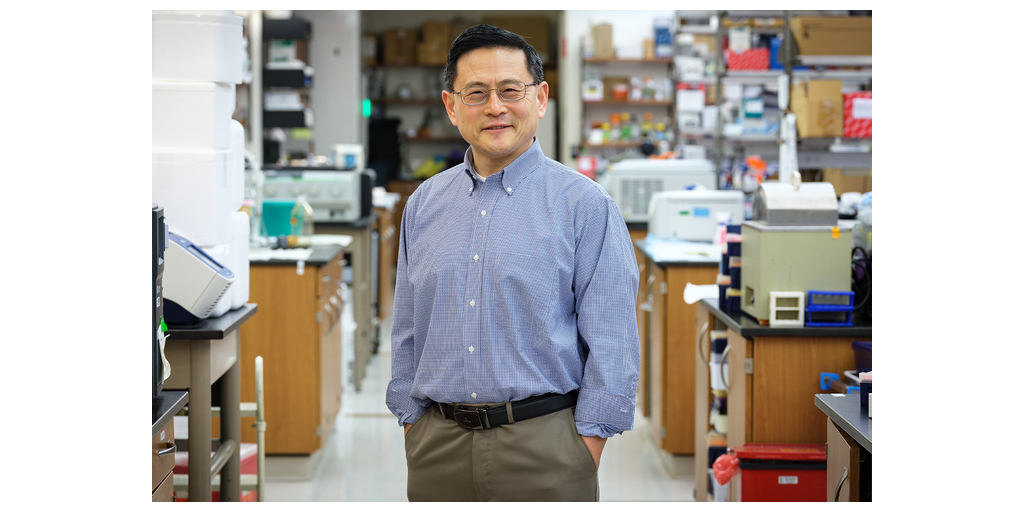
Sepsis often leads to shock and multiple organ failure, making it one of the leading causes of in-hospital deaths worldwide. While much of the mystery surrounding sepsis remains, Feinstein Institutes for Medical Research scientists published in Cellular & Molecular Immunology the discovery of a protein that inhibits the body’s ability to clear bacteria, opening new avenues of therapeutic research.
By The Feinstein Institutes for Medical Research · Via Business Wire · January 6, 2023
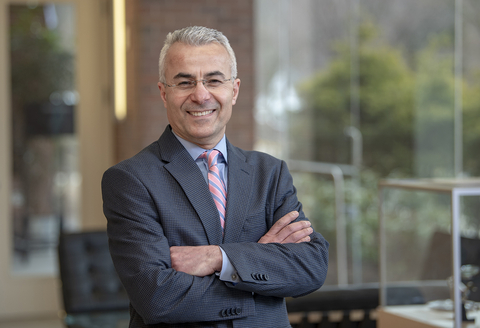
Peptides, short sections of proteins made up of chains of amino acids, are an important area of new drug development due to their potential for increased specificity and fewer side effects. Their main drawback is the rapid degradation by the body’s own enzymes, which has led to the need to develop longer-lasting peptide alternatives. Azapeptides are one type of peptide alternative that has shown great potential as therapeutics, exemplified by the HIV drug, Atazanavir (Reyataz).
By The Feinstein Institutes for Medical Research · Via Business Wire · November 28, 2022

The spinal cord plays a vital role in the human body – it acts as the information highway sending signals to and from our brain, helping to control our movements and process sensations. When someone suffers a spinal cord injury (SCI) it can lead to paralysis, sometimes in all four limbs. To better understand what happens to the brain and body after a SCI and to develop new methods of treatment using bioelectronic medicine to regain movement and sensation, researchers at The Feinstein Institutes for Medical Research have been awarded a five-year, $3.6 million grant from the New York State Department of Health to study spinal cord stimulation and novel brain implant technology.
By The Feinstein Institutes for Medical Research · Via Business Wire · November 23, 2022
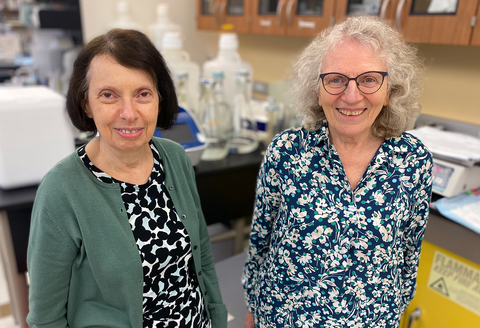
In recognition of their ongoing research and leadership in rheumatology, The Feinstein Institutes for Medical Research’s Betty Diamond, MD, and Anne Davidson, MBBS, have been awarded top honors by the American College of Rheumatology (ACR) and the Association of Rheumatology Professionals. The pair was formally recognized during the ACR Convergence 2022 annual conference, November 10-14 in Philadelphia, Pennsylvania.
By The Feinstein Institutes for Medical Research · Via Business Wire · November 17, 2022

When the Coronavirus disease 2019 (COVID-19) pandemic gripped the nation, doctors scrambled to keep up with their patients’ constantly changing and unpredictable outlook. The Feinstein Institutes for Medical Research scientists saw early potential in using diverse patient population data from Northwell Health – New York's largest health system –and developed a clinical tool to better inform frontline staff on a patient’s prognosis and severity of the disease. Two-and-half-years later, pulling from 35,000 COVID-19 inpatients, researchers published results in Nature Communications detailing how data from basic blood work and other vitals could accurately project a patient’s outcomes and aid in clinical care decision-making.
By The Feinstein Institutes for Medical Research · Via Business Wire · November 15, 2022

Every year, approximately 8 million Americans are susceptible to dangerous, often fatal blood clots when they are admitted to the hospital for a medical illness such as stroke or an infection like COVID-19. During the Late Breaking Clinical Trial Presentation at the American Heart Association’s Scientific Sessions 2022 in Chicago, Illinois, the Feinstein Institutes for Medical Research’s Alex C. Spyropoulos, MD, shared data from a large clinical trial showing the effectiveness of a new digital tool that assesses and decreases the risks of these blood clots – both during hospitalization and post-discharge period – as well as provide life-saving preventative therapy.
By The Feinstein Institutes for Medical Research · Via Business Wire · November 7, 2022
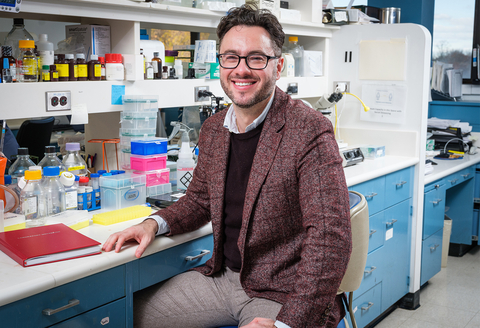
Electrically stimulating the vagus nerve has shown potential to treat inflammatory diseases, including rheumatoid arthritis, lupus and diabetes. Now, a team of bioelectronic medicine scientists at The Feinstein Institutes for Medical Research is one step closer to developing more precise, selective neuromodulation techniques. A new paper published in Brain Stimulation showed that delivering high-frequency electrical stimulation activates specific sensory nerve fibers of the vagus nerve and could be the key to better targeting and treating inflammation and disease.
By The Feinstein Institutes for Medical Research · Via Business Wire · November 4, 2022
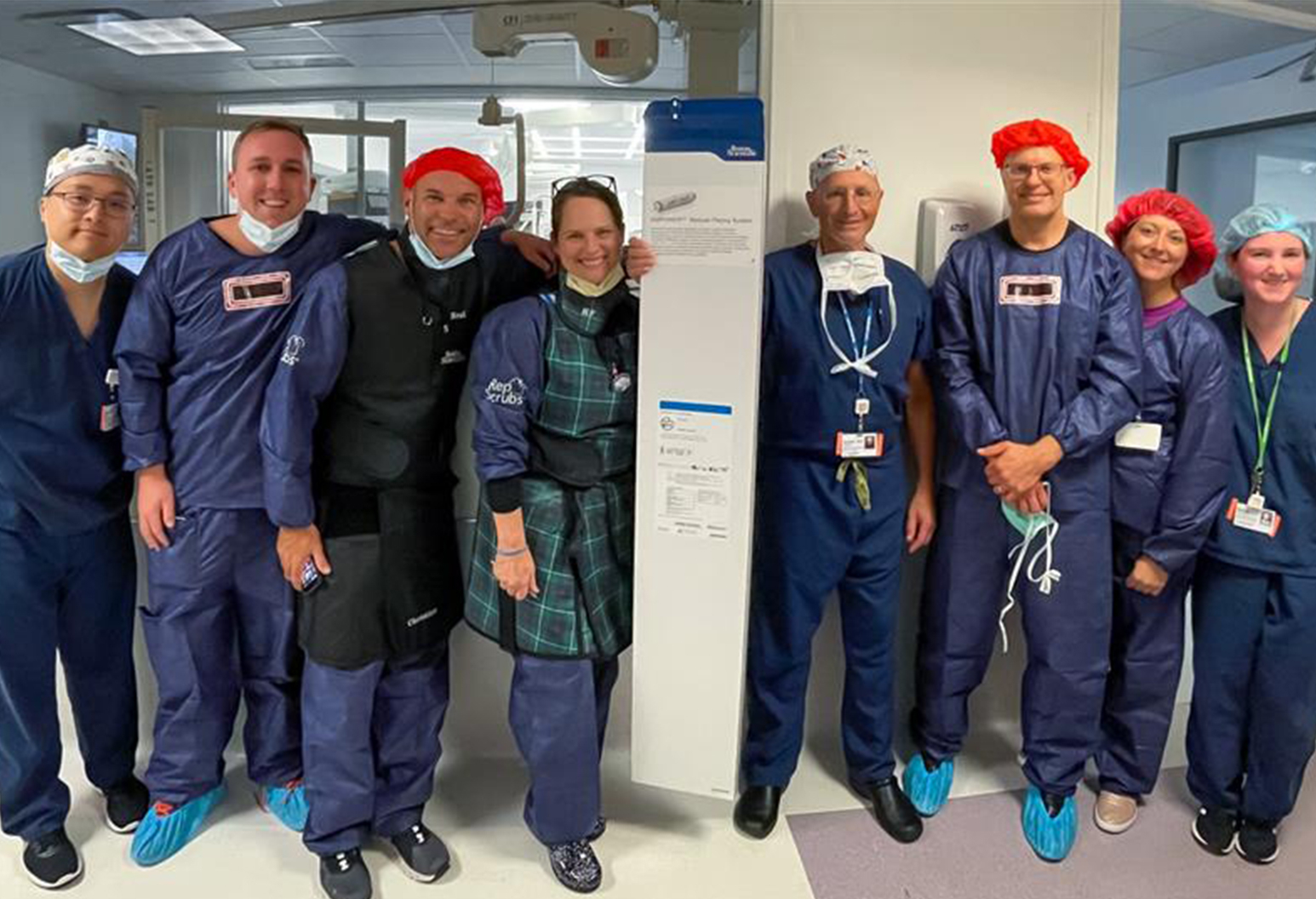
Like a paramedic in your chest, a team of Northwell Health clinicians, electrophysiologists and clinical trial investigators at The Feinstein Institutes for Medical Research successfully implanted a modular cardiac rhythm management (CRM) system in the first patient to be enrolled in the Boston Scientific MODULAR ATP clinical trial. The patient, James Giambrone, of Amityville, NY, is the first person to be part of the clinical trial in the Northeast and was implanted with an implantable defibrillator and leadless pacemaker.
By The Feinstein Institutes for Medical Research · Via Business Wire · October 21, 2022
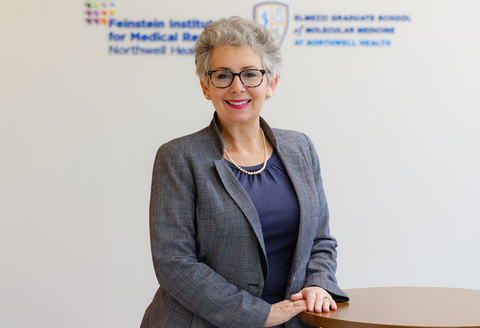
Approximately 130,000 people will die from lung cancer in 2022, making it the most common cause of cancer death in the United States. A new study recently published in the journal Annals of Internal Medicine, written by The Feinstein Institutes for Medical Research’s Karina Davidson, PhD, reviews preventative lung cancer screening guidelines and outlines hurdles health systems and clinicians still need to overcome to make prevention more effective – including the need for follow-up care.
By The Feinstein Institutes for Medical Research · Via Business Wire · October 14, 2022
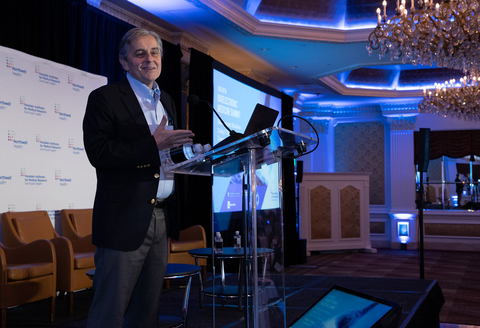
Some of the most influential international medical experts, researchers and scientific minds participated in the fifth Bioelectronic Medicine Summit, “Bioelectronic Medicine: Today’s Tools, Tomorrow’s Therapies,” hosted by The Feinstein Institutes for Medical Research. Along with The Columbia University’s School of Engineering and Applied Science, the event was the first in-person Summit since the pandemic, taking place on October 11-12 at the Garden City Hotel in Garden City, New York, where more than 170 people attended.
By The Feinstein Institutes for Medical Research · Via Business Wire · October 13, 2022

Scientists from The Feinstein Institutes for Medical Research, Kevin J. Tracey, MD, and Valentin Pavlov, PhD, published in Neuron findings of preclinical and clinical research in bioelectronic medicine, highlighting potential hope for patients who live with inflammatory diseases, cancer, diabetes, rheumatoid arthritis and other disorders. Treating these diseases without the use of traditional, often harmful, biologics may be possible with bioelectronic medicine.
By The Feinstein Institutes for Medical Research · Via Business Wire · October 10, 2022
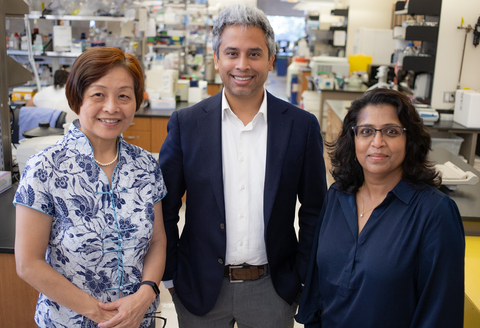
A bump, bruise or broken bone is painful. And while pain is an important defense mechanism to protect the body and promote healing, chronic pain can be debilitating. In the United States alone, 20-50 million adults suffer from chronic pain. New research published by scientists at The Feinstein Institutes for Medical Research in the journal Bioelectronic Medicine sheds light on the molecular mechanisms that occur when high-frequency electrical stimulation (HFES) is applied transcutaneously (over the skin), which reduces inflammation and pain.
By The Feinstein Institutes for Medical Research · Via Business Wire · October 5, 2022
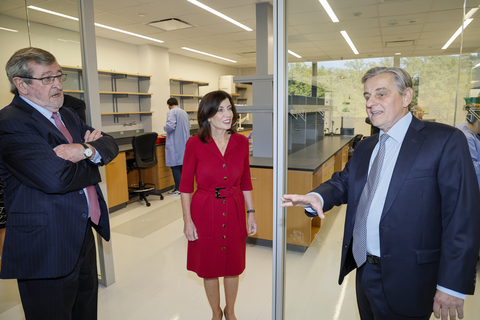
During a special event, The Feinstein Institutes for Medical Research, the research home of Northwell Health, and Governor Kathy Hochul today announced the completion of a $35 million, 20,000-square-foot renovation project meant to energize future breakthroughs in bioelectronic medicine. The state-of-the-art research space in Manhasset was completed through a funding grant given by New York’s Empire State Development (ESD). Gov. Hochul also announced a new $10 million ESD grant awarded to the Feinstein Institutes for a second phase of lab renovations.
By The Feinstein Institutes for Medical Research · Via Business Wire · September 27, 2022
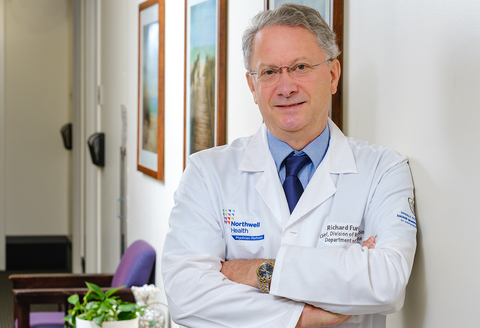
Northwell Health’s Division of Rheumatology and The Feinstein Institutes for Medical Research recently published in the New England Journal of Medicine (NEJM) data showing that an experimental lupus therapy reduced disease activity in joints of patients and globally improved their condition. The Biogen Inc.-sponsored phase 2 LILAC (Part A) clinical trial evaluated the efficacy of the investigational monoclonal antibody drug litifilimab (BIIB059) to treat systemic lupus erythematosus (SLE).
By The Feinstein Institutes for Medical Research · Via Business Wire · September 16, 2022
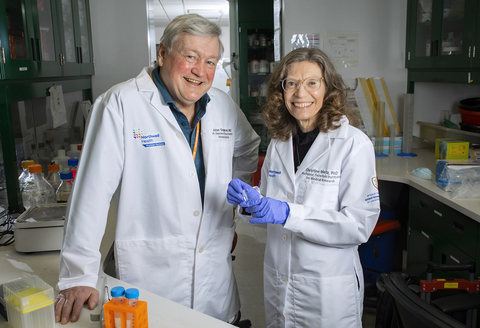
Since 2016, scientists at The Feinstein Institutes for Medical Research have studied the genetic and cellular makeup of menstrual blood or menstrual effluent (ME) to diagnose endometriosis. Today they published a new study in Springer Nature’s BMC Medicine that shows their ability to use ME to identify patients who may have endometriosis.
By The Feinstein Institutes for Medical Research · Via Business Wire · September 15, 2022
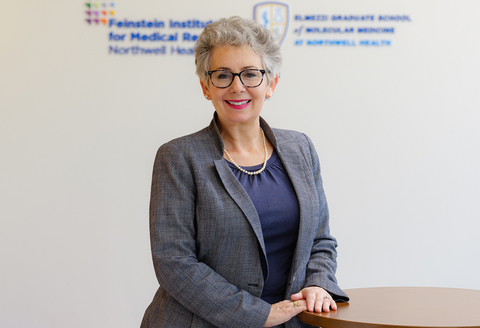
Clinical trials are the backbone of scientific progress; every new drug, device, or medical procedure must be investigated to ensure their safety and efficacy. Standard clinical trials – like randomized controlled trials (RCT) – often include large groups of people and are not tailored for personalized care. In a new, special issue of Harvard Data Science Review, researchers at The Feinstein Institutes for Medical Research gathered data from around the world that explores personalized, also known as N-of-1, clinical trials and how they benefit the patient.
By The Feinstein Institutes for Medical Research · Via Business Wire · September 8, 2022

Each year, more than 48 million cases of sepsis are diagnosed and account for 11 million deaths annually. Current sepsis treatment is limited; to address this clinical need researchers from the Feinstein Institutes for Medical Research and Northwell Health’s Department of Pediatrics and Cohen Children’s Medical Center published new research in the journal Proceedings of the National Academy of Sciences of the United States of America (PNAS) indicating that stimulating the molecular target of a different blood pressure drug enhanced the immune response to sepsis.
By The Feinstein Institutes for Medical Research · Via Business Wire · August 29, 2022
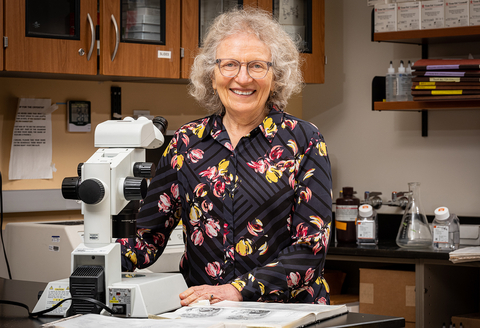
Millions worldwide and an estimated 200,000 people in the United States have lupus, of whom 90 percent are women. In an effort to translate basic molecular research into better therapy for patients seeking care, The Feinstein Institutes for Medical Research has been awarded a $3 million Global Team Science Award from the Lupus Research Alliance. Betty Diamond, MD, director of the Institute of Molecular Medicine at the Feinstein Institutes and the Maureen and Ralph Nappi Professor of Autoimmune Diseases, will lead the research efforts as the corresponding investigator with a multi-disciplinary global team.
By The Feinstein Institutes for Medical Research · Via Business Wire · August 24, 2022
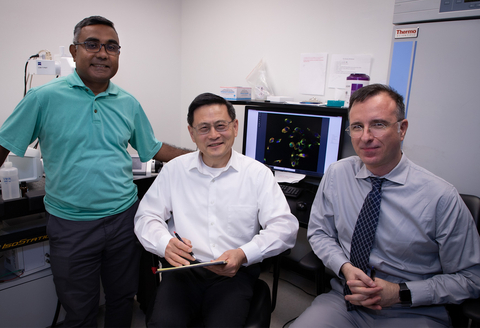
Terrorism, acts of war, nuclear power plant malfunctions; the risk of massive radiation exposure is ever-present. Scientists from The Feinstein Institutes for Medical Research have been awarded a five-year, $3.8 million grant from the National Institutes of Health (NIH) to study how radiation affects the human body’s immune system and how to better treat sepsis in people who have been exposed to radiation injury.
By The Feinstein Institutes for Medical Research · Via Business Wire · August 12, 2022

Genetic testing has been part of the in vitro fertilization (IVF) process for three decades and allows parents to screen embryos for illnesses. Yet, a new technique – polygenic embryo screening (PES) – has some scientists concerned. Todd Lencz, PhD, professor in the Institute of Behavioral Science at The Feinstein Institutes for Medical Research, and 17 others from the Ethics Committee of the International Society of Psychiatric Genetics (ISPG), today expressed concern in The Lancet Psychiatry about PES services for psychiatric conditions for both scientific and ethical reasons.
By The Feinstein Institutes for Medical Research · Via Business Wire · August 2, 2022
